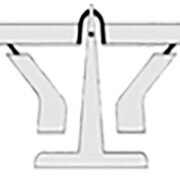Best Agriculture Lawyers in Palermo
Share your needs with us, get contacted by law firms.
Free. Takes 2 min.
List of the best lawyers in Palermo, Italy
About Agriculture Law in Palermo, Italy:
Agriculture plays a significant role in the economy of Palermo, Italy. The region is known for its fertile land, favorable climate, and diverse agricultural products. Agriculture law in Palermo governs various aspects such as land use, crop cultivation, livestock management, environmental protection, and food safety regulations.
Why You May Need a Lawyer:
You may need a lawyer specializing in agriculture law in Palermo for various reasons. Some common situations where legal assistance may be required include land disputes, contract negotiations, regulatory compliance, environmental law violations, and disputes with agricultural workers or suppliers.
Local Laws Overview:
In Palermo, Italy, agricultural activities are regulated by laws at the regional, national, and EU levels. Key aspects of local laws that are particularly relevant to agriculture include land use planning regulations, agricultural subsidies, water management laws, animal welfare regulations, and food safety standards.
Frequently Asked Questions:
1. Can I engage in agricultural activities without obtaining permits in Palermo?
No, various permits and licenses are required for agricultural activities in Palermo to ensure compliance with regulations and environmental standards.
2. What are the legal requirements for importing agricultural products into Palermo?
Importing agricultural products into Palermo requires compliance with customs regulations, phytosanitary certificates, and food safety standards.
3. How can I resolve a dispute with my agricultural worker in Palermo?
You may need to consult with a lawyer specializing in labor law to resolve disputes with agricultural workers in Palermo, Italy.
4. What environmental regulations apply to agricultural activities in Palermo?
Agricultural activities in Palermo are subject to environmental regulations governing water use, waste management, pesticide use, and biodiversity conservation.
5. Can I receive government subsidies for agricultural activities in Palermo?
Yes, the government offers subsidies and incentives to support agricultural activities in Palermo, Italy. You may need legal assistance to understand and apply for these subsidies.
6. What are the legal implications of selling organic products in Palermo?
To sell organic products in Palermo, you must comply with regulations governing organic certification, labeling requirements, and quality standards.
7. How can I protect my agricultural land from potential legal disputes in Palermo?
You may need legal advice on land use planning, property rights, land purchase agreements, and zoning regulations to protect your agricultural land in Palermo.
8. What are the legal implications of using genetically modified organisms (GMOs) in agriculture in Palermo?
The use of GMOs in agriculture in Palermo is regulated by EU laws and requires compliance with labeling requirements, risk assessment procedures, and environmental impact assessments.
9. Can I challenge a decision by agricultural authorities in Palermo?
If you disagree with a decision by agricultural authorities in Palermo, you may seek legal assistance to challenge the decision through administrative appeals or court proceedings.
10. How can I ensure compliance with food safety regulations for my agricultural products in Palermo?
You may need legal advice on food safety standards, quality control measures, traceability requirements, and product labeling to ensure compliance with food safety regulations for your agricultural products in Palermo.
Additional Resources:
For more information on agriculture law in Palermo, you can contact the Regional Department of Agriculture, local farmers' associations, agricultural advisory services, legal aid organizations, and specialized law firms.
Next Steps:
If you require legal assistance in agriculture in Palermo, it is advisable to consult with a lawyer specializing in agriculture law to assess your specific situation, understand your rights and obligations, and navigate the legal complexities of agricultural activities in the region.
Lawzana helps you find the best lawyers and law firms in Palermo through a curated and pre-screened list of qualified legal professionals. Our platform offers rankings and detailed profiles of attorneys and law firms, allowing you to compare based on practice areas, including Agriculture, experience, and client feedback.
Each profile includes a description of the firm's areas of practice, client reviews, team members and partners, year of establishment, spoken languages, office locations, contact information, social media presence, and any published articles or resources. Most firms on our platform speak English and are experienced in both local and international legal matters.
Get a quote from top-rated law firms in Palermo, Italy — quickly, securely, and without unnecessary hassle.
Disclaimer:
The information provided on this page is for general informational purposes only and does not constitute legal advice. While we strive to ensure the accuracy and relevance of the content, legal information may change over time, and interpretations of the law can vary. You should always consult with a qualified legal professional for advice specific to your situation.
We disclaim all liability for actions taken or not taken based on the content of this page. If you believe any information is incorrect or outdated, please contact us, and we will review and update it where appropriate.











